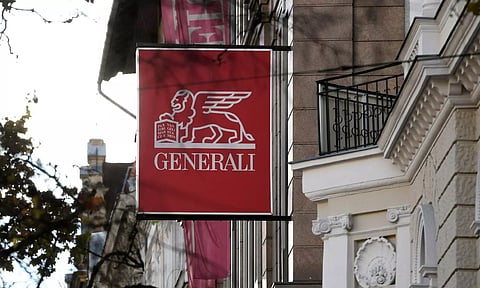

CHENNAI: Starting this year, Future Generali Life Insurance Company has embarked upon a three-year turnaround strategy, which has so far yielded positive results. For FY22-23, the Mumbai-based entity has recorded an overall premium of Rs 1,758 crore with new business premium up 22 per cent at Rs 390.4 crore while renewal premium accounted for Rs 966.5 crore, a 7 per cent surge. The joint venture is between the Future Group and foreign partner Generali, its largest shareholder in the Future Generali India Life Insurance.
Alok Rungta, deputy CEO-CFO, Future Generali India Life Insurance Company, is upbeat about the business as he tells DT Next that the Italian services partner has raised its stake from 71.79 per cent to 73.99 per cent in May this year, thereby reaching the foreign direct investment (FDI) threshold allowed for a foreign majority stakeholder. Incidentally, Generali has been the first international insurer to increase its stake to become a majority holder after the foreign ownership cap came into effect. This follows the Insurance Amendment bill, 2021, wherein the FDI in the insurance sector has been raised to 74 per cent from 49 per cent.
Sharing the progress of the company post his entry into it in February this year, Rungta says though the digital evolution in south east Asian countries is superior compared to India, when it comes to life insurance, our country is ahead. This is mainly due to the business model, which rides on the channel of distribution network. The company has a presence in over 2000 owned and partnered locations in India (19,000 plus agencies and 100 plus branches), offering total insurance solutions at the individual and group front. In fact, such is the market potential of India that the foreign partner is open to even raising its stake to 100 per cent but for the FDI cap. The influence of a multi-national for an Indian subsidiary has been advantageous from a compliance and process mechanics perspective. “The integration project is helping us to adhere to the global requirements. We have begun well as we are ticking all the boxes so far. We are seeing some green shoots and are on the right trajectory,” says Rungta, who comes with decades of insurance experience.
The latest development has brought in clarity in the organisation. Given the insolvency status of the Kishore Biyani led insurance entity, the entry of the foreign partner has been a boon of sorts. Interestingly, in a capital guzzling industry, Future Generali is able to see its solvency level at 240 per cent (July 2023) against the Insurance Regulatory Authority Development requirement of 150 per cent, post the infusion of funds.
The insurance veteran is of the opinion that there is no hurry to achieve a profitable growth as the emphasis is on value creation. “India is a game of scale and our effort is to provide a complete solution basket for the customer. So, wherever pruning is necessary, we will do that as post-COVID, the formula is to get the triad – customer, distribution and product, right,” he says.
South is a dominant and promising market, says Rungta, noting that while the mix of customers is urban and non-urban, the growth plans would be skewed towards non-urban customers.
Though interest rates have been witnessing a ‘yoyo’ effect, Future Generali has not “compromised” on this as it has been strong on the bonus declaration front.
While the industry growth over the next 3-5 years is pegged at 12 to 15 per cent, Rungta is confident that his company too is poised to achieve a similar trajectory. Incidentally, 40 per cent of the business growth happens during the ‘JFM’ quarter. “January, February and March are our festival months, as the tax rush” during that period propels customers towards insurance options.